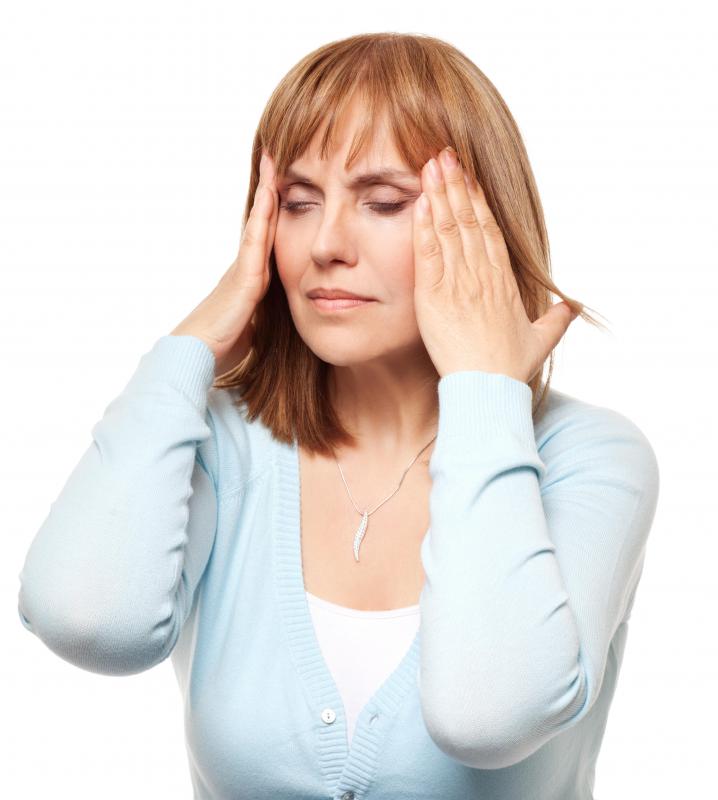At WiseGEEK, we're committed to delivering accurate, trustworthy information. Our expert-authored content is rigorously fact-checked and sourced from credible authorities. Discover how we uphold the highest standards in providing you with reliable knowledge.
What is the Connection Between Menopause and Headache?
Menopause and headache are connected because chronic headaches are one of the common symptoms of menopause. Menopausal headaches are thought to be caused by fluctuations in hormones. They can be mild or severe, or those who already suffer from migraines may have more frequent attacks at the onset of menopause. Headaches are a common symptom during this transitional period of life, and may cause great discomfort for sufferers.
Hormones shifts during the menopausal period can cause a laundry list of symptoms including hot flashes, night sweats, mood swings, irregular or nonexistent periods, nausea, vomiting, cramping, and headaches. This is similar to the symptoms which occur in many women during pregnancy. Menopause and headache occur together in many women, but it is considered one of the less-known symptoms.

Treatment for menopause and the headache pain which accompanies it generally includes over the counter medications, or in severe cases, prescription medications. Hormonal replacement therapy is also a common menopause treatment and may also help to alleviate the pain associated with headaches. Natural remedies are also commonly used and may be safer to take for longer periods of time.

Other ways to help with menopause and headache include getting plenty of rest to reduce fatigue, staying out of bright fluorescent lighting when possible, using a tinted shield if using the computer for long periods of time, and avoiding any food or medications which have been known to trigger headaches in the past. Muscle tension can also cause headache pain during this time, so it is important than menopausal women exercise frequently to strengthen the back muscles and improve posture, as well as to reduce the risk of bone loss when combined with a healthy diet.

If headaches do not subside, or if they become worse despite proper treatment or continue even after other menopausal symptoms have ceased, patients are encouraged to seek medical counsel. Another condition could be to blame, such as stress. Although rare, chronic headaches could signal a more serious medical condition which should receive treatment by a licensed physician. In most cases, once hormonal balance has been restored to the body via medical treatments or natural ones, menopause symptoms should subside.
AS FEATURED ON:
AS FEATURED ON:















Discuss this Article
Post your comments